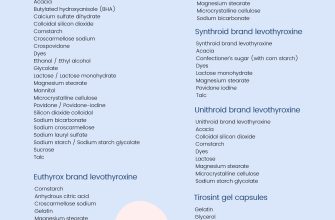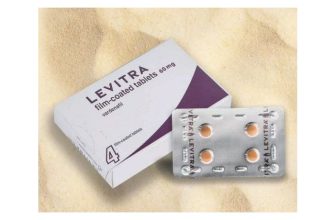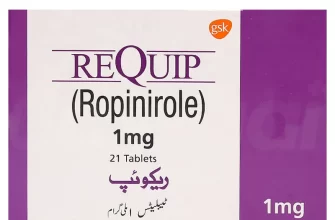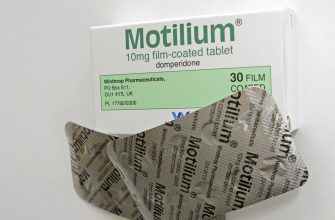Tinidazole 500mg tablets treat various bacterial infections. Doctors prescribe it primarily for bacterial vaginosis (BV), a common vaginal infection. This medication effectively targets the bacteria causing this condition, providing relief from symptoms like unusual discharge and odor.
Beyond BV, tinidazole also combats other infections. It’s frequently used to treat giardiasis and amebiasis, intestinal infections caused by parasites. These parasites can lead to diarrhea, abdominal cramps, and nausea; tinidazole effectively addresses these issues. Your physician will determine the correct dosage and treatment duration based on your specific infection.
Important Note: Tinidazole is an antibiotic, and like all antibiotics, it can have side effects. Common side effects include nausea, vomiting, and diarrhea. Always consult your doctor before taking tinidazole or any medication, and inform them about any other medications you’re currently taking to prevent potential drug interactions. They can guide you on managing any side effects and ensure the medication is right for you.
- What is Tinidazole 500mg Used For?
- Treating Infections
- Specific Uses
- Important Note
- Treating Bacterial Vaginosis (BV)
- Understanding BV Treatment
- Potential Side Effects
- Alternatives to Tinidazole
- Combating Trichomoniasis
- Understanding the Infection
- Partner Treatment
- Prevention Strategies
- Potential Side Effects
- Follow-up
- Addressing Giardiasis Infections
- Effective Against Amebiasis
- Use in Treating Intestinal Infections
- Role in Treating Other Protozoal Infections
- Important Considerations Before Use
- Pregnancy and Breastfeeding
- Allergies and Conditions
- Potential Side Effects and Precautions
- Interactions with Other Medications
- Precautions
- Reporting Side Effects
- Interactions with Other Medications
What is Tinidazole 500mg Used For?
Tinidazole 500mg is a powerful antibiotic used to treat various bacterial infections. It effectively combats several types of bacteria responsible for common ailments.
Treating Infections
This medication targets infections of the vagina (bacterial vaginosis), intestines (Giardia lamblia and Entamoeba histolytica infections), and skin. It’s also prescribed for certain types of diarrhea.
Specific Uses
Bacterial Vaginosis: Tinidazole effectively eliminates the bacteria causing this common vaginal infection. Amoebiasis: It successfully treats infections caused by Entamoeba histolytica, a parasite leading to amoebic dysentery. Giardiasis: This medication is highly effective against Giardia lamblia, a parasite causing giardiasis, characterized by diarrhea and abdominal cramps. Always follow your doctor’s instructions regarding dosage and duration.
Important Note
Tinidazole should only be taken as prescribed by a healthcare professional. Never self-medicate. Inform your doctor about any allergies or pre-existing medical conditions before starting this medication. Side effects can occur and should be reported to your physician.
Treating Bacterial Vaginosis (BV)
Tinidazole 500mg is a frequently prescribed antibiotic for bacterial vaginosis (BV). A single 2 gram dose is often sufficient to treat this common vaginal infection. Your doctor might recommend a different dosage or duration, depending on your individual needs and the severity of your infection.
Understanding BV Treatment
BV is caused by an imbalance of bacteria in the vagina. Tinidazole works by killing the harmful bacteria, helping to restore a healthy balance. Remember to finish the entire course of medication, even if symptoms disappear before you complete the prescribed dosage. This prevents the infection from returning.
Potential Side Effects
While generally well-tolerated, tinidazole can cause side effects, such as nausea, vomiting, or diarrhea. These are usually mild and temporary. Severe allergic reactions are rare but possible. Contact your doctor immediately if you experience severe reactions, such as difficulty breathing or swelling of your face, lips, or tongue. Avoid alcohol consumption during treatment, as this can lead to a disulfiram-like reaction, causing unpleasant symptoms such as flushing, nausea, and vomiting.
Alternatives to Tinidazole
Metronidazole is another effective antibiotic commonly used to treat BV. Your doctor will determine the most suitable treatment option based on your medical history and individual circumstances. It’s vital to discuss your treatment options fully with your healthcare provider before starting any medication.
Combating Trichomoniasis
Tinidazole 500mg is a highly effective treatment for trichomoniasis, a common sexually transmitted infection (STI). A single 2g dose (four 500mg tablets) is usually sufficient to eradicate the infection. Your doctor will provide specific instructions based on your individual needs. Remember, completing the entire prescribed course is critical for a successful outcome.
Understanding the Infection
Trichomoniasis, caused by the parasite Trichomonas vaginalis, often presents with symptoms like vaginal discharge, irritation, and painful urination in women, and urethritis in men. However, many individuals remain asymptomatic, unknowingly carrying and spreading the infection.
Partner Treatment
It’s crucial that both partners receive treatment simultaneously to prevent reinfection. Even if one partner shows no symptoms, they should still seek testing and treatment. This approach significantly improves the chances of a complete cure and prevents future transmission.
Prevention Strategies
Safe sex practices are paramount in preventing trichomoniasis. This includes using condoms consistently and correctly during sexual activity. Regular STI testing is also recommended, particularly for sexually active individuals.
Potential Side Effects
| Side Effect | Frequency |
|---|---|
| Nausea | Common |
| Diarrhea | Occasional |
| Headache | Occasional |
| Metallic taste | Less common |
Consult your healthcare provider immediately if you experience any severe or persistent side effects. They can provide personalized advice and address any concerns you may have. Remember, open communication with your healthcare provider is key to successful treatment and management of trichomoniasis.
Follow-up
Following treatment, a follow-up appointment is often recommended to confirm the infection has been successfully cleared. This will also provide an opportunity to address any lingering questions or concerns.
Addressing Giardiasis Infections
Tinidazole 500mg is a highly effective treatment option for giardiasis, a parasitic infection causing diarrhea, stomach cramps, and nausea. A typical course involves taking two 500mg doses, one after another. This simple regimen often eliminates the infection within a week.
However, always follow your doctor’s instructions carefully. Dosage and duration may vary depending on the severity of the infection and individual factors. Complete the entire prescribed course, even if symptoms improve, to prevent relapse.
Besides medication, proper hygiene is vital. Wash hands thoroughly after using the toilet and before handling food. This prevents reinfection and protects others. Thorough cleaning and disinfection of surfaces contaminated with feces also significantly reduces transmission risk.
Drink plenty of fluids to stay hydrated, especially during diarrhea. Electrolyte solutions can help replenish lost minerals. A balanced diet supports your body’s healing process. Severe cases may require hospitalization for intravenous fluid therapy.
If symptoms persist or worsen after treatment, seek immediate medical attention. Your doctor may need to conduct further tests and potentially prescribe alternative treatment options.
Effective Against Amebiasis
Tinidazole 500mg directly combats Entamoeba histolytica, the parasite causing amebiasis. This medication targets both intestinal and extra-intestinal forms of the disease.
Treatment typically involves a single dose of 2000mg (four 500mg tablets) or a course of 1500-2000mg spread across three days. Your doctor will determine the optimal regimen based on your specific needs.
- Intestinal amebiasis: Tinidazole effectively eradicates the parasite from the digestive tract, relieving symptoms like diarrhea, abdominal cramps, and blood in stool.
- Extra-intestinal amebiasis: While primarily used for intestinal infections, tinidazole can also be part of a treatment plan for liver abscesses or other serious complications.
Remember: Always follow your doctor’s instructions carefully regarding dosage and duration of treatment. Self-treating can be dangerous. Proper diagnosis is vital before beginning any medication.
- Consult your doctor to determine if tinidazole is the right treatment for you.
- Report any side effects immediately to your healthcare provider. Common side effects include nausea, vomiting, and metallic taste in the mouth.
- Complete the entire course of medication, even if symptoms improve, to ensure complete parasite elimination.
Tinidazole offers a powerful weapon against amebiasis, providing relief and contributing to a successful recovery. However, it’s crucial to obtain professional medical advice before use.
Use in Treating Intestinal Infections
Tinidazole 500mg effectively treats various intestinal infections caused by susceptible bacteria and parasites. It’s particularly useful against Giardia lamblia and Entamoeba histolytica, common culprits behind giardiasis and amoebiasis, respectively. These infections often present with symptoms like diarrhea, abdominal cramps, and nausea.
Your doctor will determine the appropriate dosage and duration of treatment based on the specific infection and your individual health. Typically, a single dose or a short course of medication is sufficient. However, always follow your doctor’s instructions precisely.
While tinidazole is generally well-tolerated, potential side effects include nausea, vomiting, and a metallic taste in the mouth. Inform your doctor if you experience any adverse reactions. Remember to complete the entire course of medication, even if symptoms improve, to ensure complete eradication of the infection.
Tinidazole is not suitable for all individuals, particularly pregnant women, nursing mothers, and people with certain liver or neurological conditions. Always discuss your medical history with your doctor before starting any new medication, including tinidazole.
For specific information about your condition, always consult a healthcare professional. They can accurately diagnose your infection and tailor treatment to your unique needs.
Role in Treating Other Protozoal Infections
Tinidazole’s broad-spectrum activity extends beyond Trichomonas vaginalis. It effectively targets several other protozoal infections.
- Giardiasis: Tinidazole demonstrates high efficacy against Giardia lamblia, a common cause of intestinal infection. A single 2g dose often provides adequate treatment.
- Amoebiasis: While metronidazole remains the first-line treatment for amoebic dysentery and liver abscess, tinidazole offers a viable alternative, particularly in cases of metronidazole resistance or intolerance. Treatment regimens usually involve a 3-day course.
- Balantidiasis: Caused by Balantidium coli, this intestinal infection responds well to tinidazole. Treatment duration and dosage should follow physician guidance, as it can vary based on the severity of infection.
Remember, always consult a healthcare professional for diagnosis and treatment. Self-medication can be dangerous. Dosage and duration should be tailored to the specific infection and patient factors. This information should not substitute professional medical advice.
- Proper diagnosis is paramount. Microscopic examination of stool samples or other diagnostic tests are necessary to confirm infection.
- Treatment success depends on adherence to the prescribed regimen. Complete the full course of medication, even if symptoms improve.
- Potential side effects vary, but commonly include nausea, vomiting, and diarrhea. Report any adverse reactions to your doctor.
Important Considerations Before Use
Inform your doctor about all your current medications, including over-the-counter drugs and herbal supplements. Tinidazole can interact with certain medications, potentially affecting their effectiveness or causing adverse reactions. Specifically, mention anticoagulants (blood thinners) and alcohol, as these interactions are particularly noteworthy. Avoid alcohol consumption during treatment and for at least 72 hours after your final dose; severe reactions are possible.
Pregnancy and Breastfeeding
Pregnant women should generally avoid tinidazole, as it may pose risks to the developing fetus. If pregnancy is suspected, discuss this with your doctor immediately before starting treatment. Similarly, if you are breastfeeding, consult your doctor; tinidazole may pass into breast milk, and its potential effects on the infant need to be assessed. Always prioritize your health and that of your child by discussing the potential risks and benefits.
Allergies and Conditions
Let your healthcare provider know if you have any known allergies, particularly to other nitroimidazole medications like metronidazole. Inform your doctor of any pre-existing conditions, especially neurological disorders, liver or kidney disease, or blood disorders. This allows your doctor to make an informed decision regarding the safety and suitability of tinidazole for you.
Potential Side Effects and Precautions
Tinidazole can cause side effects, though not everyone experiences them. Common side effects include nausea, vomiting, diarrhea, and abdominal pain. Less common, but still possible, are headaches, dizziness, and a metallic taste in your mouth. Rarely, more serious reactions like allergic reactions (rash, itching, swelling, difficulty breathing) may occur. Stop taking tinidazole and seek immediate medical attention if you experience any severe allergic reaction.
Interactions with Other Medications
Tinidazole interacts with certain medications. Specifically, it can interact with warfarin (a blood thinner), disulfiram (used for alcohol dependence), and lithium (used to treat bipolar disorder). Inform your doctor about all medications, including over-the-counter drugs and supplements, you are taking before starting tinidazole treatment. This helps prevent potential harmful interactions.
Precautions
Avoid alcohol consumption during treatment and for at least three days after completing the course. Tinidazole can cause a disulfiram-like reaction with alcohol, leading to unpleasant symptoms. Pregnant or breastfeeding women should discuss the use of tinidazole with their doctor before taking it. Patients with liver or kidney problems should also consult their physician, as dosage adjustments might be necessary. Finally, do not drive or operate heavy machinery if you experience dizziness or drowsiness. These are possible side effects of tinidazole.
Reporting Side Effects
If you experience any concerning side effects, report them to your doctor or pharmacist. This helps healthcare professionals monitor the safety of the medication.
Interactions with Other Medications
Tinidazole can interact with several medications, potentially altering their effectiveness or causing adverse effects. Always inform your doctor about all medications, supplements, and herbal remedies you are taking before starting tinidazole. This includes prescription drugs, over-the-counter medications, and even vitamins.
Specifically, concurrent use with warfarin (a blood thinner) may increase the risk of bleeding. Close monitoring of your INR (international normalized ratio) is necessary if you’re on warfarin. Similarly, tinidazole might interact with lithium, potentially leading to increased lithium levels in your blood. Regular monitoring of your lithium levels is recommended during and after tinidazole treatment.
Disulfiram-like reactions (similar to those experienced with Antabuse) can occur if you consume alcohol during or shortly after tinidazole treatment. This can manifest as nausea, vomiting, headache, and flushing. Avoid alcohol completely during treatment and for at least 72 hours afterward.
The interaction between tinidazole and certain medications metabolized by the liver (like some antidepressants or anticonvulsants) might require dose adjustments. Your doctor can determine if adjustments are needed based on your individual situation. Inform your doctor of any seizure disorders or mental health conditions you have.
Finally, tinidazole may interact with other drugs that affect the gut microbiome. Consult your doctor if you are taking antibiotics or probiotics concurrently. This is crucial for managing potential side effects and maximizing treatment benefits.










